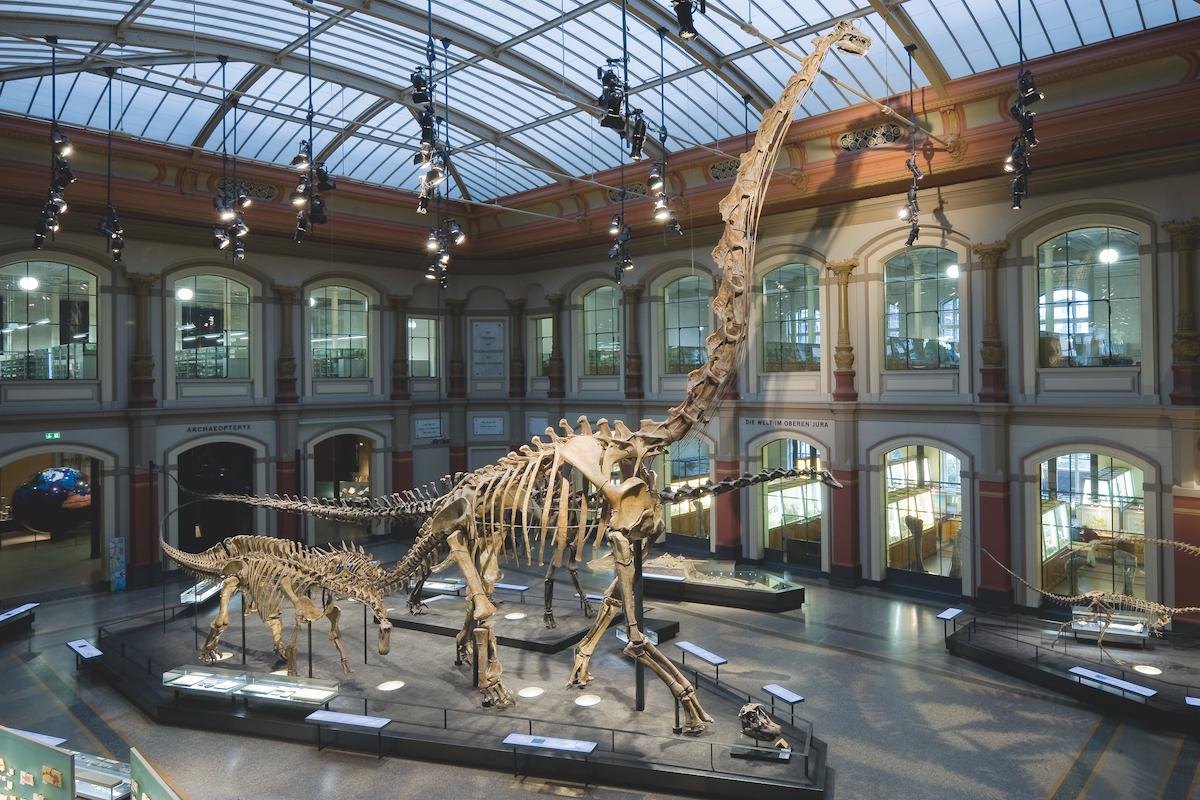This year's Cave Canem US Poetry Prize has been awarded to Brandon Kilbourne, evolutionary biologist at the Museum für Naturkunde Berlin. His poetry collection ‘Natural History’ bears witness to how the exploration of the natural world was intertwined with the horrors of slavery and colonialism. The book will be published in autumn 2025 by Graywolf Press, a leading non-profit publisher in the USA.
While poetry and science might seem an odd combination, the specimens found in the Museum für Natrukunde’s exhibitons and collections offer a unique source of poetic inspiration. Drawing upon the African dinosaurs on exhibtion, in particular the towering Giraffatitan brancai, and the museum’s mammal collection, Kilbourne’s collection explores the stories of evolution and the history of science embodied by museum specimens. Kilbourne also used objects from Copenhagen and New York to examine how natural history was historically intertwined with colonialism and transatlantic slavery.
“My poems cast a critical eye upon past practices in the scientific pursuit of natural history to open up the question of how to reconcile natural history’s curiosity-driven research and appreciation for biodiversity with the discipline’s unsettling connections to colonialism,” says Kilbourne. “I would say there is not a clear answer, but I hope my work gets the reader to consider this question and the multiple lenses through which to view past study of the natural world.”
The use of poetry to explore the natural history’s past was at the heart of constest judge Natasha Trethewey’s decision to choose Natural History for the Cave Canem Prize. Trethewey, who is a former US Poet Laureate and winner of the 2007 Pulitzer Prize, is herself a leading voice in using poetry to investigate the complexities of history. In her judge’s citation, Trethewey notes that as “a research biologist working at the Berlin Museum of Natural History, Dr. Kilbourne has examined the artifacts and plumbed their meanings. The result is a complex meditation on wonder and devastation of the natural world and an elegy for the earth by an observer who sees, clear-eyed, the ways it ‘premonishes disappearance.’”
“As someone whose formal training was in the sciences and not in creative writing, winning the Cave Canem Prize feels unbelievably special,” said Kilbourne. “However, what makes this an even more exceptional honor is to have Natural History selected for this prize by Natasha Trethewey. The selection of Natural History for the Cave Canem Prize also underscores the commonalities of awe, curiosity and observation that are present between poetry and science and the ability of these two disciplines to enhance one another. It also demonstrates that objects of natural history are worthy subjects for poetry.”
